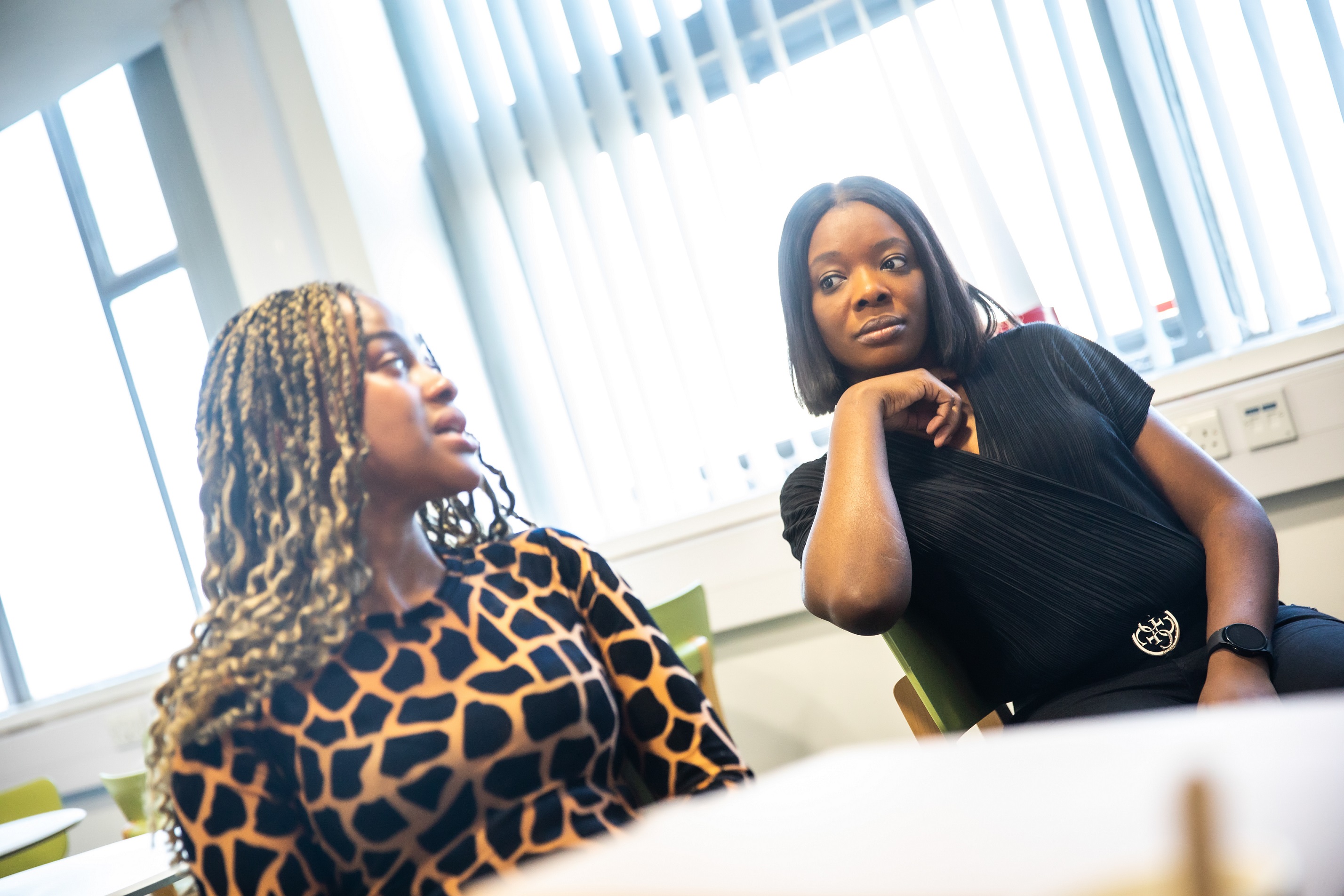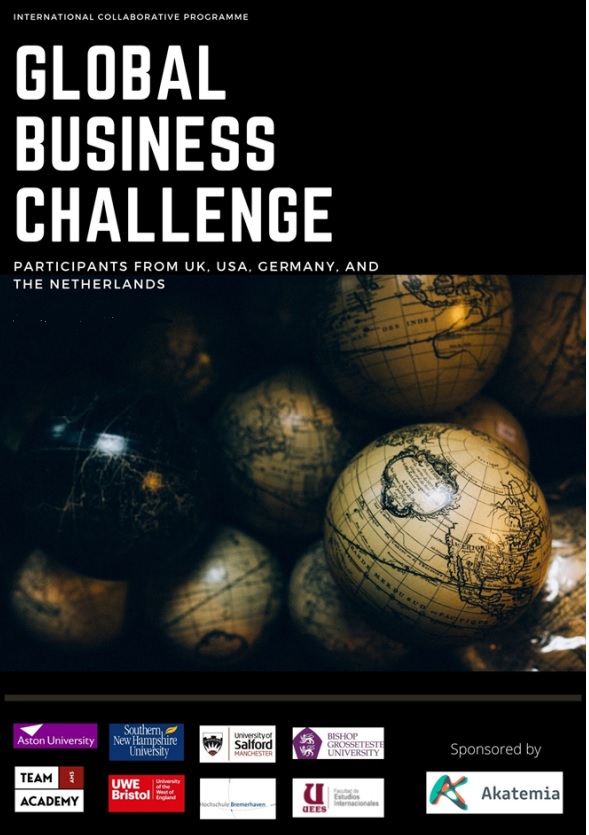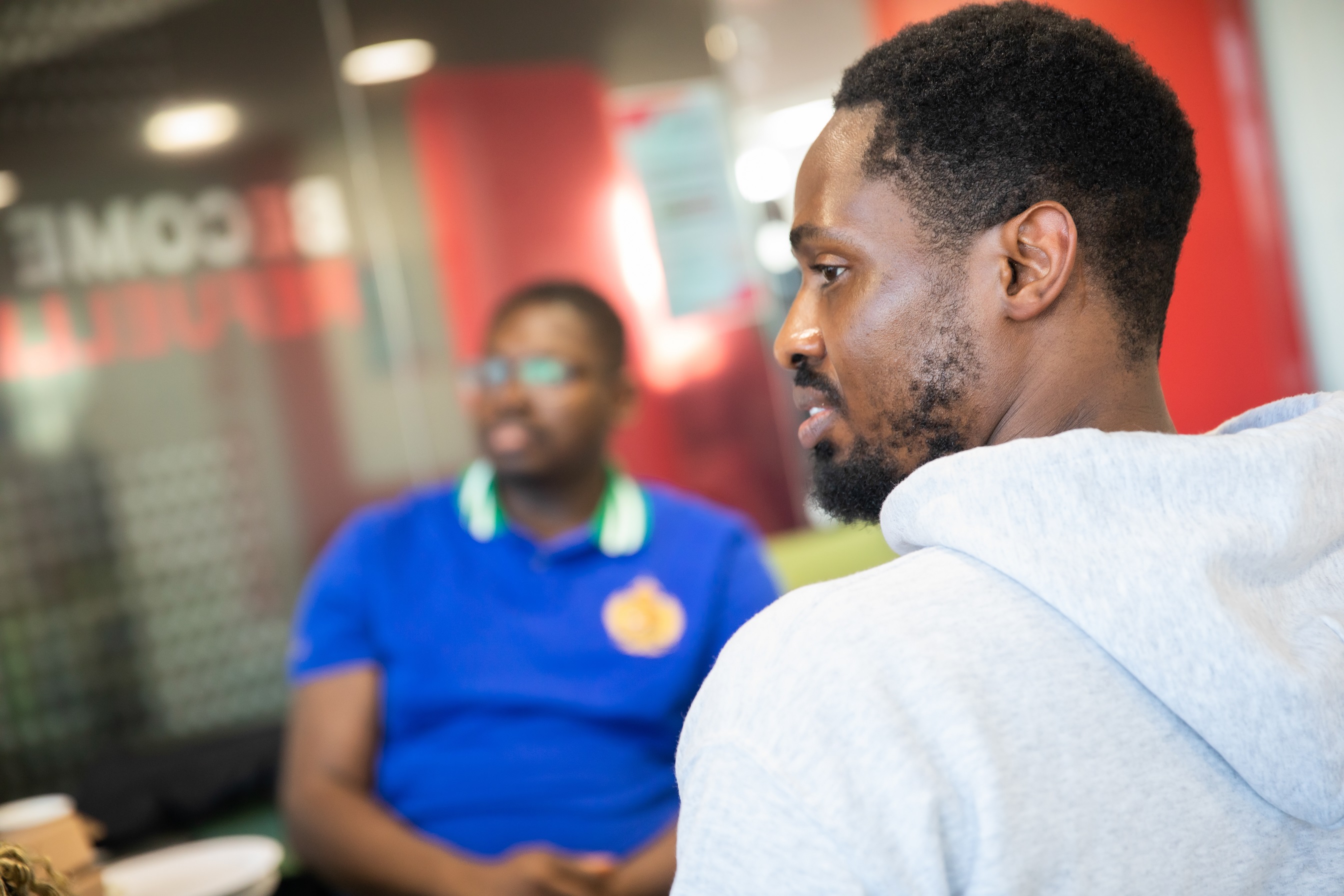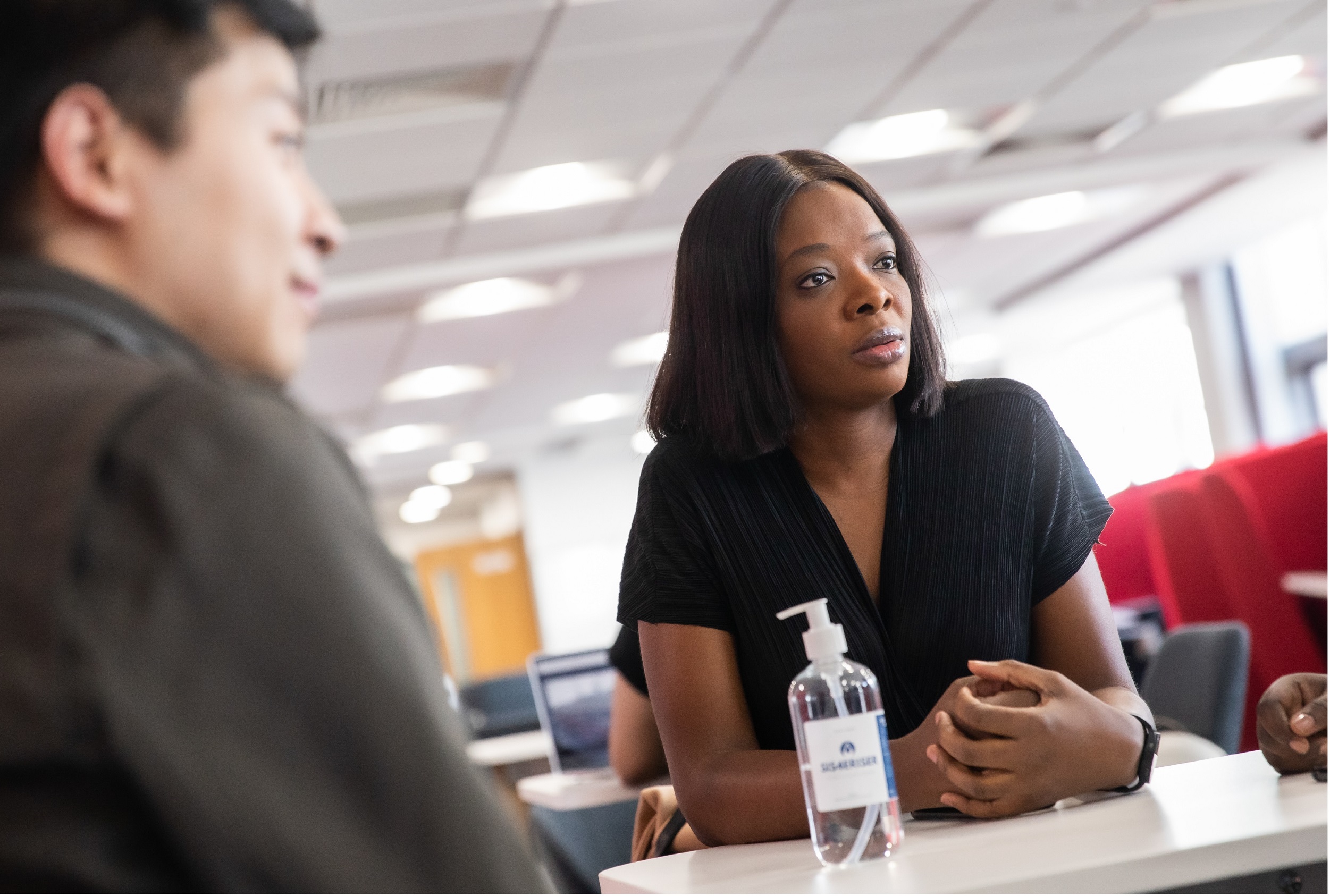Global Business Challenge
In 2022, international postgraduate students from across the school joined other students from around the world to take part in the Global Business Challenge. Our students were coached throughout the journey by coaches from a participating university who were more experienced in the Team Academy Model, which this challenge was based upon. Our students developed their skills by working in teams on real client projects.
We met with the students to hear about their experiences on the Challenge and to find out how this is helping their job opportunities after they graduate.

Why did you decide to do the GBC?
Teni Ijabiyi: I decided to join the GBC because I felt that it would be an opportunity for me to test my skills, to network and to understand how things are done in other parts of the world. I also wanted the hands on experience because I knew we were going to be working on live projects.
Nkeiru Okeke: Initially, I was interested to do the Global Business Challenge because I have a friend that did it. And she talked endlessly about it. I was keen and interested and I wanted to have the same experience as she did. But as I applied for it and started to find out more about it, I started to think, I've never done a business strategy, I've never done the market analysis for a real company. So that became my reason. I wanted to have that knowledge and experience which can be transferable.
What project did you work on?
Teni: We worked on Pacari Chocolates looking at how to help the company penetrate the American market. We had to do a lot of brainstorming, strategizing, market analysis, SWOT analysis. We had to create buyer personas and figure out how they can benchmark against competitors in the American market.
Nkeiru: we worked on a project for a company doing 3d online viewer, it's a 3d model that helps you view 3d images online. They wanted to scale up so they were looking for ways to learn how they can drive their business growth, their customer retention and all that stuff. We had a lot of international students from Ecuador, Finland and America and our project was to find tools and ways to analyse the business’s current situation and find ways they can improve.
I was on a sub team in charge of the market analysis. We were finding out more about the business’s current situation, where they are in the market so that was what we did on the business challenge. We started with our research. What can this business do differently to actually scale up? We looked at their competitors to find out what they're doing, especially the big ones to put them at that level. Then we did a presentation to the company about our findings. Based on the market analysis and the market strategy, we gave our business analysis report to the clients; were able to say, you can think of doing this and this to help your business scale up.

What did you learn?
Teni: I learned how to collaborate more effectively because I had to work with people from different parts of the world, different time zones. We had to consider other people in their time zones, you always have to factor in different things to make sure that the team works together so no one feels left out.
Nkeiru: I’ve learned a lot of transferable skills like negotiation skills. Because of different time zones, there was a lot of negotiation. In terms of presentation styles as well, how to play around with images, keeping the presentation very short but conveying a lot of information. And finally, the research side of how you can actually do the processes to use to scale the business in real life.
Adetokunbo Oguntowo: For me, I learned that if I’m challenged and given the right environment, that I can take a business decision that can lead a real business from trouble to profitability
Junwei Feng: What I would say I learned was – we were working in a group of people from different countries, different timelines. And normally, I would say I'm an introvert. I am a good listener but if I have an opinion, I wouldn’t give it. There was one presentation we had at the first meeting, the coach noticed and from there on, she was always pushing me. And that really made me contribute to meetings and research, providing solutions. I learned you have to provide input. And at the end, I was giving good ideas. So when I find the response of people is positive, it helps me.
How did you find the experience?
Junwei: First of all, I would like to say that our coach did a wonderful job. She made it a very friendly environment for us to start.
Nkeiru: What I enjoyed best about the challenge was the people because they were so cooperative and you see that it was really a team, everybody wanted to get the job done. So having such a cooperative set of people makes the work really easy, even with the time difference. I really learned a lot, I worked with co-operative people and I still keep in touch with some so I've made friends, and it’s given me a platform to network as well.
Teni: One of my fondest memories was on a Sunday morning. We were trying to put together a presentation and all of us on the teams were in our pyjamas. We were working and just talking, talking, talking. Then one of the girls I said ‘Yo guys, I need to get something to eat’. I was like okay, yeah, and we kept on working and eating. We had a lot of fun doing that, all in our PJs.

So, what’s next?
Teni: I'm about to graduate and I'm currently job hunting. I’ve noticed that, every time I talk to people about the Global Business Challenge, they are excited, they want to hear about it, they ask me: “What’s your experience and how can you apply this when you get this job?” So the Global Business Challenge, not only does it give you exposure and a network, it also places you on a pedestal, where you can actually say “I worked on this project”, and employers are curious.
Nkeiru: Shortly after the GBC, I got involved in the university boot camp organised by Baker Hughes, a global energy technology company. The whole process just reminded me of the Global Business Challenge; you're in a team to find out ways about a situation. It was a case study, about how can you scale up this business. When you have done this sort of thing before, you find yourself taking the lead. I said to the team, “we need to do this this way”. I was able to bring the resources that I used in the business challenge or I got from people that were in my team on the business challenge.
Our thanks to:
Jude Anah, MSc Managing Innovation and Technology
Junwei Feng, MSc Marketing
Teni Ijabiyi, MSc Digital Business
Bunmi Ogunniyi, MSc Management
Adetokunbo Oguntowo, MSc Procurement, Logistics and Supply Chain Management
Nkeiru Okeke, MSc Accounting and Finance
About the Global Business Challenge

- The Global Business Challenge is a business case competition for students around the world. It takes an innovative approach to building employability skills and international business understanding which uses peer learning, design thinking, customer focus and team working to create a virtual learning experience described as ‘transformational’ by previous participants.
- In 2022, a group of 24 Salford Business School from different Masters programmes were selected to take part in the Global Business Challenge.
- Teams were made up of 8 to 12 students from different partner Universities working together on real business challenges for clients around the world. Each team has a coach from one of the universities.
- The Salford Business School students were supported by coaches Dr Ambarin Asad Khan, Laura Becerra and Dr Romas Malevicius.
- Other participating universities include Aston University, Bremerhaven University of Applied Sciences (Germany), TAMK Proakatemia (Finland), Southern New Hampshire University (USA), Universidad Espiritu Santo and University of West of England.
- Since the competition started in September 2020, over 200 students, 10 businesses and more than 20 academics from nine institutions, across six countries and three continents have risen to the challenge of exploring the possibilities of virtual collaboration.
- The Global Business Challenge offers a unique experiential learning opportunity for Salford Business School students and also enables them to build their social capital and form meaningful business connections.

